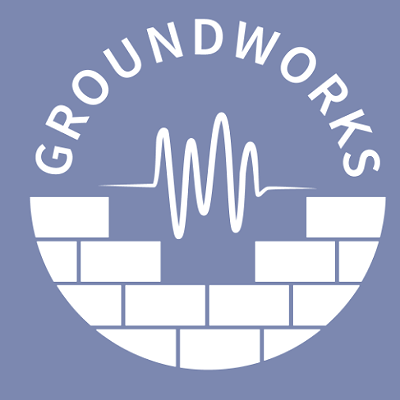DOWNTOWN GROUP HOPES TO CLEAR LAST OBSTACLES FOR LOW-POWER FM
Jason LeValley has been trying to jump the necessary FCC hurdles for the better part of three years in an effort to launch a low-power FM frequency that can transmit programming to the city's most densely populated areas: downtown and the UA.
LeValley formed a nonprofit organization, LPFM Downtown Tucson, and has done enough legwork to make the project happen. However, if he can't persuade a couple of other groups to look into other frequencies, he may be stuck sharing the signal with them.
The process is convoluted. The FCC opened applications for six low-power FM signals in the Tucson area. Through a tier and points calculator, the FCC has determined that LeValley's organization is tied with two other groups, the Tohono O'odham Nation and La Iglesia Centro de Sanidad, for three remaining signals.
So in that regard, it seems fairly simple. Three organizations, three frequencies. Each organization can have its own low-power radio station. Problem is, LeValley says the other parties haven't signed off on this proposal, and by not doing so it places the whole thing in jeopardy.
"I'm trying to get some settlement agreement worked out so we each can get our own frequency and not have to wait," LeValley said. "If we do nothing, the FCC will just table this, do nothing and come back to it maybe in a year or so. I really don't like the idea of having to wait longer because I've been working on this for three years, and I just want to get it going."
LeValley is also concerned about another possibility. If an agreement isn't reached, the FCC could give an FM frequency to multiple groups on a shared-airing basis. Theoretically, under this scenario, the low-power FM could vacillate from LeValley's planned noncommercial rock format to Spanish-language religious programming to Tohono-driven material.
"That makes for strange bedfellows," LeValley said.
This is LeValley's pitch: He'd like to see the Tohono O'odham Nation occupy a signal at 102.5 FM. While the low-power FM concept is designed for organizations that don't have ties to other radio organizations or own other signal frequencies, Native American reservations are exempt from that clause. The Tohono O'odham Nation already operates a radio station, KOHN 91.9 FM, but could utilize an available low-power frequency for more programming. LeValley says the Nation is best suited for 102.5 because it covers a range that serves the reservation most effectively and wouldn't be as beneficial for the other two organizations.
That might be the easier of the two sells. A Tohono O'odham board needs to approve the concept and might be willing to do so soon.
The real issue has been with the Iglesia group. LeValley has met with members a couple of times in hopes they'd sign off on 90.1 FM, which is closer to other Christian-based stations on the dial. LeValley says he's even offered to assist with engineering waivers to determine the potential effectiveness of the signal, but further meetings with the Iglesia group have been consistently postponed.
"It's like La Iglesia is just content to share time with my group," LeValley said.
Meanwhile, LeValley would prefer exclusive access to 99.1 FM because studies have suggested that signal would provide the best clarity for residents in and around downtown. But at this stage he'd gladly accept 90.1 if it came to that.
"We don't expect this to be a gold mine, but ideally we'd like to get it to the point where we have three full-time employees and make it a viable nonprofit business," LeValley said. "We're also going to provide a community service about worthy organizations and do our part to unite and serve."
PARA-SCOPE MAKES KICKSTARTER PUSH
Local radio veteran Chuck Aubrey is using online fundraising techniques in an effort to launch what he calls a "para-political" show for one hour a week on Journal- owned talk station KQTH 104.1 FM.
Aubrey is in the midst of a $5,000 fundraising effort on kickstarter.com (http://kck.st/1dn9IUJ). What Aubrey calls para-political others would more commonly refer to as the conspiracy realm.
"Conspiracy theory is a label people apply when they have no argument left," Aubrey said. "Any time I start presenting facts on my show, people might say that's just a theory, but it's a fact counter to the official story. There are no theories involved. If you think it's all coincidence, I suppose you're a coincidence theorist."
Aubrey argues that the mainstream media is agenda-driven and susceptible to consistent narratives based more in propaganda than fact.
"Almost anything going on right now has a slant to it, and everyone feels like they need to spin it for their point of view," Aubrey said. "Why can't we just have objective facts? There has to be a way of presenting facts where you aren't just screaming at people and it's not just propaganda."
If Aubrey can raise the funds, the money will go to at least three months' worth of broker fees—he needs to rent time from the station for the venture—and website upkeep at para-scope.com.
"There's an illusion being perpetuated by mainstream journalists of left versus right, liberal versus conservative, labels to divide people at the outset of the debate," said Aubrey, who hosted a similar show called Gnosis for nearly six years on 1330 AM. "It's my contention that the so-called "extreme" left and right are actually the mainstream, and this constituency isn't being addressed or served by the current lack of dialogue in the media.
"The main thing dividing the two camps tends to be religion, with religious fundamentalism being the wedge. I look forward to providing a forum for honest, verifiable facts to cut through the confusion sowed by the mainstream media."
Aubrey's Kickstarter fundraising push concludes April 3.
"Hopefully there are people who will support alternative media and put their money where their mouths are," Aubrey said.




